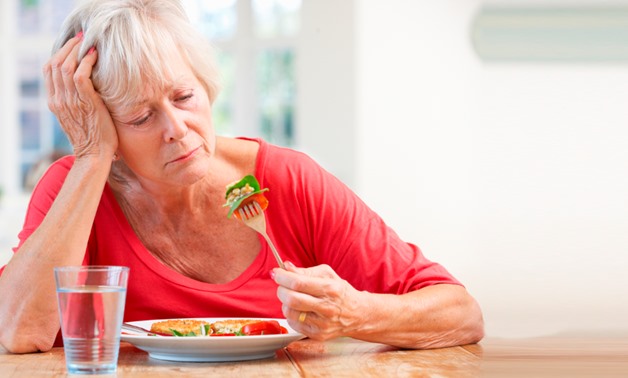
CC via Pixabay
CAIRO - 4 February 2018: Cancer is a multifaceted disease, and while medical care forms a big chunk of treatment, the right nutrition is also key to defeating the disease, dealing with the side effects of the treatment, as well as safeguarding against it.
So eating the right kinds of food before, during and after cancer treatment can help the patient feel better and stay stronger. Nutritionist Dr. Shady Labib clarifies that while researchers admit that nutrition can’t actually cure the disease, a healthy diet is key to maintaining patients’ strength and weight.
“Research shows that many cancer patients die due to losing weight, and not because of cancer,” Dr. Labib says, adding that this makes a balanced, healthy diet key.
Patients lose muscle and weight during cancer treatment, and while foods alone cannot stop the muscle and weight loss, they can slow it down by providing the proper caloric intake that supports the body from breaking down. Labib adds that a proper, balanced diet before chemotherapy helps minimize the side effects.
Labib explains that, in general, a healthy diet includes eating and drinking enough nutritious foods and liquids that replenish the body with vitamins, minerals, protein, carbohydrates, fats and water. However, with over 100 types of cancer, carrying various side effects and treatments, nutritional needs do differ from one patient to another. So while one cancer patient may be able to eat normally, another might not and would require a juice-only diet that is easier to digest.
Cancer treatment sometimes makes it hard on patients to eat well and it can affect the head, neck, stomach or the intestines. Side effects of the treatments alter taste, appetite, smell and ability to eat, and may include loss of appetite, mouth sores, a dry mouth, trouble swallowing, nausea, vomiting, diarrhea or constipation. All these treatment side effects leave patients unable to eat enough foods to get the right nutritional value they need to stay healthy and maintain an adequate body weight at a time when it is crucial for them to keep their strength and energy. Good nutrients also help cancer patients defeat the pain and nausea.
Load up on . . .
Labib explains that the best foods for cancer patients are vegetables, fruits, proteins and carbohydrates. He suggests a diet heavy relying on fresh fruits, yogurt, cereal and whole grains. If the patient can’t tolerate solids, liquid nutrition is also effective and important; and that includes juicing fresh fruits and vegetables.
Vegetables: Load up on tomatoes, carrots, peas, pumpkins and turnips for vitamins and fiber, as well as cruciferous veggies like broccoli, cauliflower and cabbage to reduce the risk of cancer and prevent relapse. Leafy greens like spinach, kale and romaine lettuce are rich in antioxidants.
Fruits: Bananas, kiwi, peaches, mangoes and pears and berries, including blueberries, cherries and strawberries, are rich in antioxidants. Avocados, guava, apricots, figs, prunes and raisins are also good for providing energy. Bright orange fruits like citrus fruits and pumpkins are also great antioxidant sources.
Herbs: Turmeric and black pepper are good for fighting inflammation while ginger, raw garlic, thyme and basil are good for boosting immunity.
Green tea, as well as traditional teas in general, is a great antioxidant.
Avoid . .
Deep-fried foods, baked meats, excessive salt, refined sugar and oily food, hydrogenated oils, processed red meat, preserved food and alcohol. Fatty foods also increase nausea so are best avoided.
Get moving . . .
“Cancer patients should not depend only on the food, they have to exercise,” Labib explains. “During chemotherapy and radiation, patients feel exhausted and tired, but this tiredness does not get better with rest, it gets better with exercise.”
Aerobic exercise like walking, bicycling and running is great to stay active and advised after cancer treatments. Ask your doctor before you take on strength training, however.

Comments
Leave a Comment